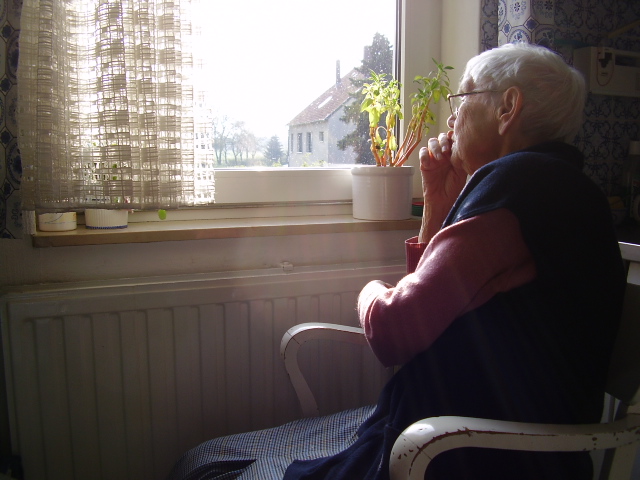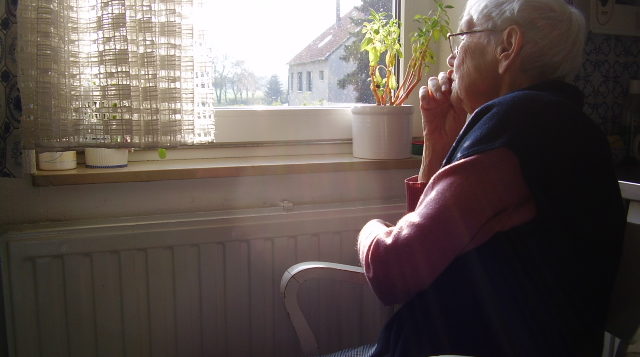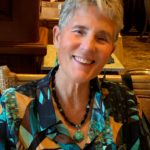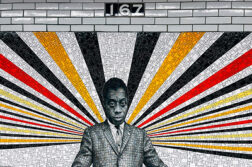
WHILE ATTENDING the University of California, Santa Barbara, I had a summer job as camp counselor mentoring a bunch of teenagers. I was struggling with my own identity as a lesbian, but had to keep that under wraps because of my job, my family, and my friends. Throughout high school, I pretended that I was straight. But I already knew that boys didn’t do it for me. I finally had a brief fling with a high school friend before I went off to college, and it was like a volcano had imploded inside of me. I wondered: “What should I do now?”
Living in dorms surrounded by a bunch of women was difficult for a closeted lesbian, so I had a succession of boyfriends. But my attempts to block out my attraction to women didn’t work. I thought maybe a few months in the mountains might my clarify my feelings. Perhaps I was just going through a “phase.” But mentoring a flock of females only confirmed what I already knew.
One afternoon, I got a letter from my mother telling me that she wanted to talk to me about “my problem” when I got home on my summer break. I didn’t know which problem she was referring to. Premarital sex? Pot? Drinking? Or, God forbid, women?
Apparently, one of my friends had sent a postcard to the house, outing me. In the postcard she described a woman she thought might be of interest to me, how pretty she was, and some other lurid details that my mother read.
I was caught. When I got home, my mother sat me down and asked me what was going on. Mom was a fairly religious person, and overly concerned with what the neighbors might say. She already had a husband who was bipolar and two sons who were showing signs of mental illness, and now she had a daughter who was gay. She was ashamed, embarrassed, and blamed herself for my “condition.”
I told her that I was not interested in men. If I had to choose between having a boyfriend or playing tennis, I would choose tennis every time. I explained that my attraction to women was something that I had felt from a very early age, and that you couldn’t pick your sexuality. You are born with it, like having blue eyes or being left-handed.
Over the years, my relationship with my mother sputtered along. I’m sure she reluctantly confided to her friends that I was gay. I know she was afraid that her friends would blame her for my sexual orientation. Perhaps she thought it was her fault. If she had raised me differently, perhaps I wouldn’t have been such a disappointment to her. Again, I reassured her that she had done nothing wrong, but I’m sure she continued to feel guilty. But I also knew that she was worried that I would inherit the bipolar gene that had affected my father and two of my brothers.
It was bad enough that I had chosen an “alternative lifestyle,” but to be plagued with mental illness was, in her eyes, another potential mark against me. When I got laid off a few times from my advertising career, she would always call me on the phone and ask me in her nervous stutter how the job search was going. I knew what that meant. Was I going to “go down the rabbit hole” like my father and two of my brothers? But I continued to rise through the ranks of publishing, even though I was handicapped in her eyes by my sexual orientation.
I had to try harder, because I was a woman and because I was gay. My older brother was the golden boy until his bipolar disorder made it difficult for him to function. As his life stumbled, I found myself exalted in her eyes and finally at the helm of the family. I had a good job, and my partner and I got along well with my mother’s new husband.
And then I got a call on Christmas when my mother was 86. My stepfather was hysterical on the other end of the line: “I had to take Ginny to the emergency room!” Apparently Mom had been battling bronchitis for the past month. But it wasn’t bronchitis. It was cancer.
Over the next six months, we went back-and-forth from the desert to our condo in Los Angeles. It was grueling seeing my mother deteriorate like a deflating helium balloon. She lost her hair. She was thin as a stick. And the worst part was seeing her disposition disintegrate. She asked me to handle her affairs. I was financially and emotionally stable, and she knew that I would do the right thing with respect to the rest of the family. I said yes. Even though my mother was not a very demonstrative person, we became very close in our own way during that time. As she explained how to manage her affairs, there was a quiet understanding between us. We were in sync.
Although my mother never really accepted my sexuality, I think she realized that my being a lesbian was incidental to our relationship. I was a good person and somebody who was always there for her. I had cared for her when she shattered her femur when I was twelve. I always listened when she had altercations with my unruly stepfather. And I was there with her until the end while she battled lung cancer. Perhaps my sexual orientation didn’t matter after all. In the end, she viewed me as a person.
And for that I am grateful.
Mary McGrath is it freelance writer living in Naples, Fl. Some of her credits include: Newsweek, The Wall Street Journal, Chicken Soup for the Soul, and many other publications. Her first book of poetry, Trespassing Stoplights and Attitudes, was published through Mudborn Press in Santa Barbara, CA. For more information: www.marymcgrathphotography.com.








Discussion4 Comments
I was so touched by your story. You are such accomplished woman in so many ways. I loved the description of all your feelings about being gay.
Your are a Rock Star in my eyes and heart.
I just saw this Patricia and thank you so much for your comment. I’m working on another one for this publication and I hope it is accepted. See you soon!
You are truly a beautiful person both inside and outside.
Thank you Marsha as are you. I miss seeing you in class.